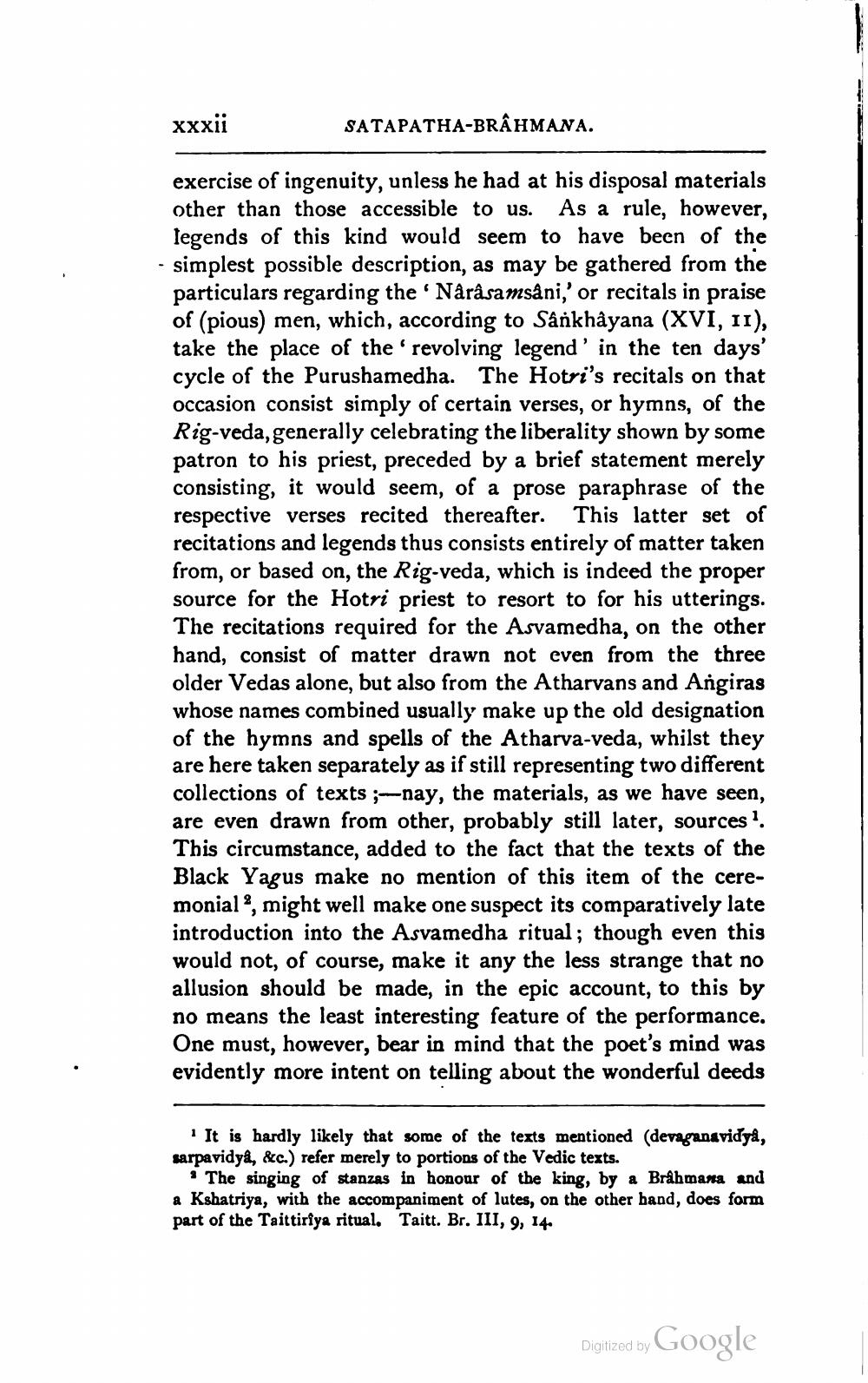________________
xxxii
SATAPATHA-BRAHMANA.
exercise of ingenuity, unless he had at his disposal materials other than those accessible to us. As a rule, however,
legends of this kind would seem to have been of the - simplest possible description, as may be gathered from the
particulars regarding the 'Nârâsamsâni,' or recitals in praise of (pious) men, which, according to Sânkhåyana (XVI, 11), take the place of the 'revolving legend' in the ten days' cycle of the Purushamedha. The Hotri's recitals on that occasion consist simply of certain verses, or hymns, of the Rig-veda, generally celebrating the liberality shown by some patron to his priest, preceded by a brief statement merely consisting, it would seem, of a prose paraphrase of the respective verses recited thereafter. This latter set of recitations and legends thus consists entirely of matter taken from, or based on the Rig-veda, which is indeed the proper source for the Hotri priest to resort to for his utterings. The recitations required for the Asvamedha, on the other hand, consist of matter drawn not even from the three older Vedas alone, but also from the Atharvans and Angiras whose names combined usually make up the old designation of the hymns and spells of the Atharva-veda, whilst they are here taken separately as if still representing two different collections of texts ;-nay, the materials, as we have seen, are even drawn from other, probably still later, sources. This circumstance, added to the fact that the texts of the Black Yagus make no mention of this item of the ceremonial?, might well make one suspect its comparatively late introduction into the Asvamedha ritual; though even this would not, of course, make it any the less strange that no allusion should be made, in the epic account, to this by no means the least interesting feature of the performance. One must, however, bear in mind that the poet's mind was evidently more intent on telling about the wonderful deeds
It is hardly likely that some of the texts mentioned (devagangvidya, sarpavidyâ, &c.) refer merely to portions of the Vedic texts.
• The singing of stanzas in honour of the king, by a Brahmana and a Kshatriya, with the accompaniment of lutes, on the other hand, does form part of the Taittiriya ritual. Taitt. Br. III, 9, 14.
Digitized by Google




